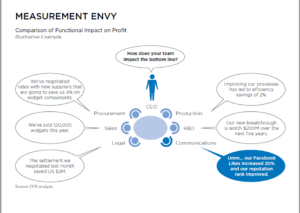The workplace, at the best of times, is a veritable minefield for anyone. If you’re a woman, it’s probably worse because men – and even women – treat it as an extension of their home, or rather their parents’ home.
All the issues girls face growing up are also found in workplaces. You know the statement often made by colleagues that goes something like this: “Well, she’s the female employee – she can make the coffee†to which all male employees laugh and women stay silent for fear of being targeted (or having to make the coffee). If you have a brother, remember how it was like when he was given preferential treatment and you were left behind. Remember how your father ‘protected’ you by not allowing you to do anything remotely fun while your brother did whatever he wanted. Well, it’s the same story at the workplace – sorry.
It doesn’t happen everywhere, of course, and not all male employees are misogynists (although many are and they don’t even know it).
Here’s what I believe women should and shouldn’t do in the business world:
- Don’t accept a low-paid job if you have the qualifications for a well-paid job
If you do, you are condoning and encouraging men to continue doing what they are doing. And be careful, many women also believe that women should be paid less than men, and they are even more difficult to convince of the contrary.
- When offered a job, ask for 20% more…
… because you probably are being 20% less than you should be getting paid, and the same amount less than male peers with similar or inferior qualifications are getting.
- You can’t let emotions get in the way – sorry!
You could be having a bad day, have your period, had a sleepless night – whatever it is, personal things should be left at home. That’s the way it works. If you are not well, phone in sick.
- If you want to be treated equally, you have to accept that men won’t open doors for you
I once had a (woman) boss who scolded me for opening the door for her. She told me in no uncertain terms that I should stop doing it. I was, as a Mediterranean man, a bit taken aback as I feel it a duty to allow women to go first, open doors for them, pull their chair out at a restaurant, etc. And that’s all fine, but not in a business environment. My (woman) boss was right. So next time a man opens the door, insist that he goes first.
- Dress for business, not for clubbing
This does not mean that you don’t look your best – you do, but with appropriate clothing. By the way, the same applies for men. A former (male) colleague whom I worked with in the media trained regularly and was relatively well-built. He always insisted on going to work in a very skimpy T-shirt. He was popular, but he was always given menial assignments and never really got far.
- No, you don’t need stilettos to do your job
Seriously, you don’t. I read somewhere that some companies insisted on their female employees to wear them. If women wear stilettos, so should men – imagine the overweight (male) manager trying to make his way up the stairs in two-inch stilettos…
- Women quotas are counterproductive (although sometimes necessary)
Quotas for women in top positions are an interesting idea, and they mean well. But if you think about it, the average person will probably think you got the position because you have mammary glands and not because you are capable. I know, it’s unfair, but the times I’ve heard male colleagues say things like this is quite incredible.
- Men will always try to put you down – don’t fall for it or they’ll win
Similar to #7, men will also find some (generally unsavoury) reason why a woman got promoted, the most obvious being that ‘she probably slept her way to the top’. There are two things to consider – the first is that the people who say theses thigs probably don’t have the balls to say it to your face because they know it’s untrue, the second is that they want a reaction from you – and if they get it, they’ll have won. Oh, and don’t forget the mob mentality of others in a group agreeing and grinning about the whole issue just to blend in.
- Never, ever accept being treated like an inferior because you are not.
- If people say it’s impossible, they often forget to finish the sentence by saying “… because you’re a womanâ€. It may be impossible for them, not you. Think with your mind and you’ll come up with the right decision that suits you as an employee (irrespective of your sex)
- Men will try to speak over you – allow it once and they’ll do so all the time
You may find it uncomfortable, uneducated, and unprofessional, but I have seen so many cases of men shutting women up by constantly speaking over them. They speak louder, then speak even louder. This is a case when you have to fight fire with fire – it’s a zero-win game. Incidentally, some women will also try this – the same applies for them.
- Men will interrupt you by saying ‘Sorry to interrupt’
Don’t accept their apology and keep on going – it’s the same as for #11
- In absolutely no way on earth is it your fault if some idiot male sexually harasses you in any way, shape or form, verbally or physically. It’s simply not your fault in any way or form.
Statistics on this are worrying, but what’s even more concerning is that most women don’t say anything about it. It may be hard, but silence is tantamount to accepting such behaviour. Regarding this point, I am relatively sure that I have done things in my professional life that have made my women colleagues uncomfortable – if I did, I sincerely apologize.
 Companies are always looking for ways to retain their best employees, their talent.
Companies are always looking for ways to retain their best employees, their talent.

